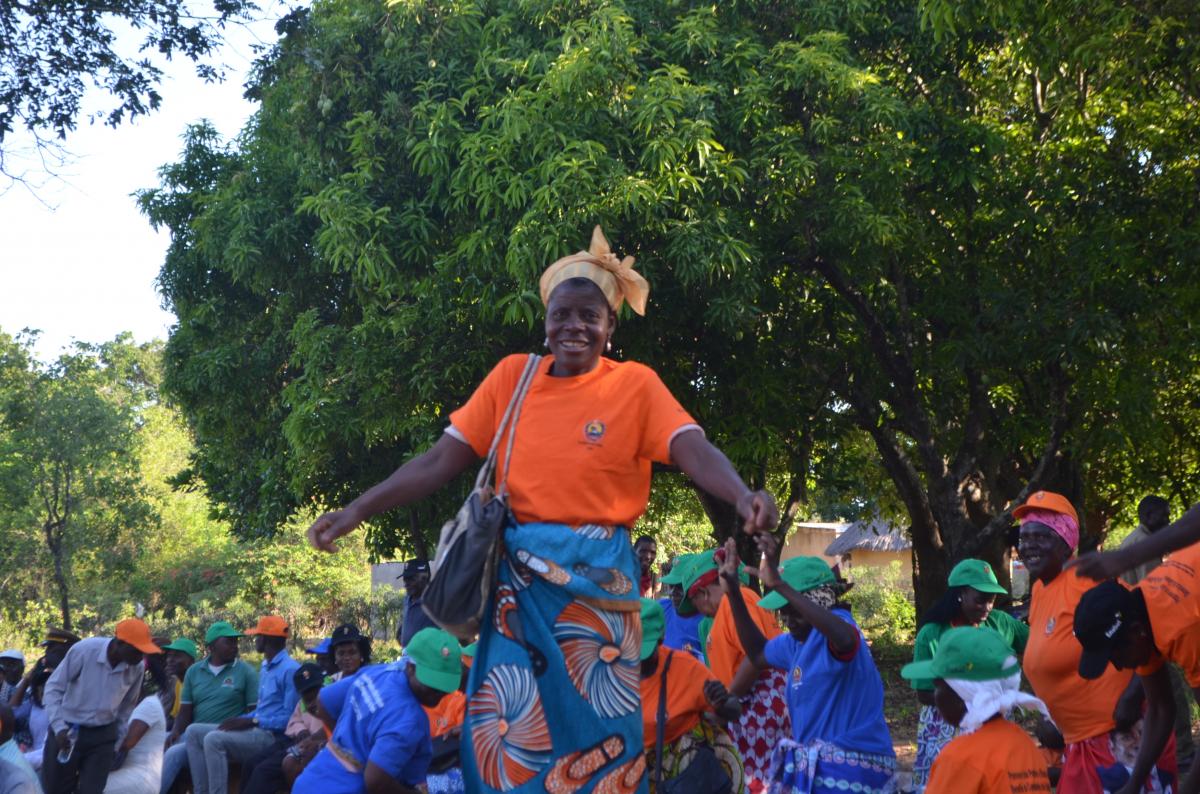Rural renewable energy use and the challenge of clear communication
By A. de Clippele and E. Waeterloos,
Enabel Mozambique
Sustainable
access to energy is an important vector to improve the living conditions of the
rural population of Mozambique. Not only can sustainable energy access
facilitate day-to-day life by extending hours for food preparation, studying or
watching TV. It can also create new opportunities for local income generation
through production of goods or services such as recharging of mobile phones or
sales of cold drinks. However, the link between energy access and
income-generating activities is not always well-known nor straightforward. That
is why it is important that the population has appropriate access to
information about possible productive uses of energy. In addition, the impact
of energy in everyday life has a strong gender dimension, as many of the
household and small-scale income generation activities are undertaken by women.
Therefore, energy can also be a tool to address gender inequities.
It is with this
in mind that the Mozambican partner Ministry of Energy and Mineral Resources
(MIREME) organized with the support of Enabel a two-day event on 28 and 29 November
2019 in the locality of Chinhambudzi in the province of Manica. The objective
was to promote and exchange knowledge on productive uses of energy and its link
with gender equity. This event was attended by the local populace, local
authorities and MIREME gender focal points from all provinces of Mozambique.
Various public and private stakeholders shared
their ideas and answered questions about productive uses and gender equity.
Both the local authorities and the population showed interest in the topic,
which demonstrates that access to energy is an important preoccupation for all.
It was also the opportunity for the ministry to be in contact with the
population and better understand its expectations. The gap in lifestyle between
the rural areas and cities where the ministries are based, makes sometimes
difficult for the authorities to understand the needs of the rural population. While
for instance the information distributed by the authorities will explain the
different sources of renewable energy, the concepts and advantages, the
population is more interested in practical information. Information that they
could directly use in their daily life. Such as how, in practice, renewable
energy will help them to have light at night? How do the improved ovens work,
how much wood or charcoal will it save and where could someone acquire one?
What are the details to verify in order to acquire a reliable solar mini-kit?
After this
public event, all gender stakeholders of the energy sector had the opportunity
to meet and discuss future actions. Different organisations such as MIREME, provincial
delegations, local authorities, FUNAE (Rural Energy Fund), Police, CPCS (Provincial
Council for the Fight against AIDS) as well as two local associations were
present. Although all interventions were linked to gender equity and energy use,
the relation between these two proved to be complex topics for the local
stakeholders. The concept of productive use is very broad and not always fully
understood. In Mozambique, classical examples of productive uses of energy are
irrigation, electrical sewing, installation of fridges/freezers, electronic
welding, improved ovens … The latter wood or charcoal-saving stoves/ovens are important,
as around 80 percent of the population uses biomass such as wood or charcoal for
daily cooking. The link between gender equity and energy transpires clearly in these
domestic uses of energy. But also, the question of gender equity inside the
public institutions was discussed. Different challenges were pointed out. Among
them, the difficulty to distribute the right information. How to reach the
whole population? It is one thing to propose a new practice, but another one to
have it accepted. It is important that everyone really understands what the
advantages are and how to use it. Some associations complained that they were
confronted with a strong resistance to change. The market is not yet interested
in what they were proposing. Eventually, by sharing experience, the
participants agreed that it takes more than new electrical grid lines to
improve the living standards of the population. Electrification is a first
step, often strongly desired by the communities. But bringing only energy is
not enough to promote sustainable development; it is important to also have the
devices and applications available to transform these new sources of energy
into new sources of income and well-being for the entire community.
Latest news from this project
No news

